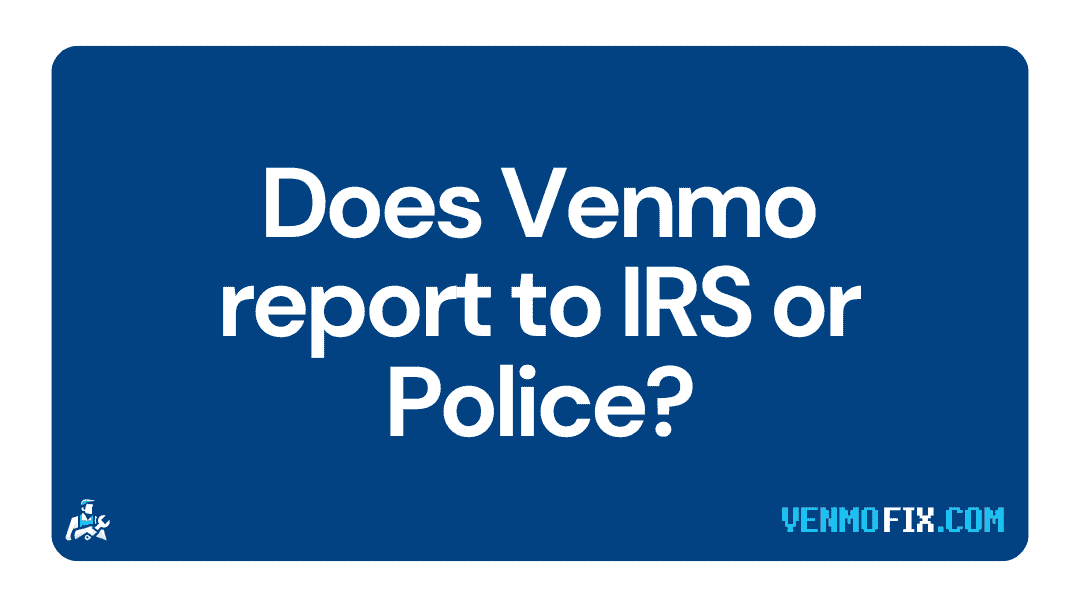Are you a Venmo user?
Are you wondering if your payment app reports to the IRS or the police?
Well, a lot of Venmo users ask a very common query. Here, we will be answering the question. So, without any further ado, let us see if Venmo reports to the IRS or not.
Does Venmo report to IRS?
Yes, Venmo reports to the IRS. Not only Venmo, every payment app, whether it is Cash App, PayPal, or Zelle, but they are also required to report to the Internal Revenue Service of the USA. This is done to keep a record of the users who are supposed to pay taxes on additional income.

But, Venmo doesn’t report to the IRS for every transaction made by the users. There are specific rules and thresholds. And if a user crosses the defined payment threshold, Venmo or any other payment app reports that activity to the IRS.
Talking about the threshold limit is 200 transactions and $20,000. On crossing these limits, Venmo will report to the IRS, and you will be asked to pay taxes on the amount.
About taxation, there is another thing that business owners must keep in mind. The payment you receive on Venmo for your products is taxable even if the income doesn’t meet the threshold discussed earlier.
Does Venmo report to the IRS for personal use?
Earlier in this post, we mentioned how Venmo reports to the IRS on exceeding the threshold limit. A lot of users also ask if Venmo reports to the IRS for personal use as well.
Yes, Venmo reports to the IRS for personal use as well if the amount crosses the threshold limit, that is, 200 transactions and $20,000. It doesn’t matter if you are a business owner or using it for personal payments. Venmo will report any kind of transaction to the IRS if it reaches the limit.
But, for non-business owners who are not selling products or receiving regular payments on Venmo. The amount lesser than the mentioned limit is not taxable. If you are making payments for Dominoes, that wouldn’t be taxable.

Can Venmo transactions be traced?
The straightforward answer to the question is – No, Venmo transactions can’t be traced by anyone. But, this only applies if you have made your transaction private. By default, your transactions are private on Venmo, but if you choose to share the details with others, your transaction activity will be shared on the public feed.
If you have kept the settings private, you do not have to worry about that. Not even Venmo can trace your transaction. As mentioned in the first part of this post, Venmo reports to the IRS if a user reaches the limit of 200 transactions and $20,000.
Another case where Venmo or any third-party company can trace the transactions is when the account holder seems to be involved in any kind of illegal activity. Sometimes, transaction details can help concerned authorities to know more about a user’s behavior.
Conclusion
Now you know, that Venmo reports to the IRS.
You might have understood when Venmo reports to the IRS. There are certain limits to the transactions. Venmo will only report the transaction to the IRS if that crosses the 200 transactions and $20,000 limit.
We also told you that transactions made via Venmo would be taxable even if the limit isn’t reached. But, that only happens if you are a business owner and receive regular payments on Venmo from your customers in exchange for products.
And in the last part of the post, we mentioned why Venmo transactions could not be traced by anyone. We also discussed the scenarios where the transactions can be traced.
Further Reading:

